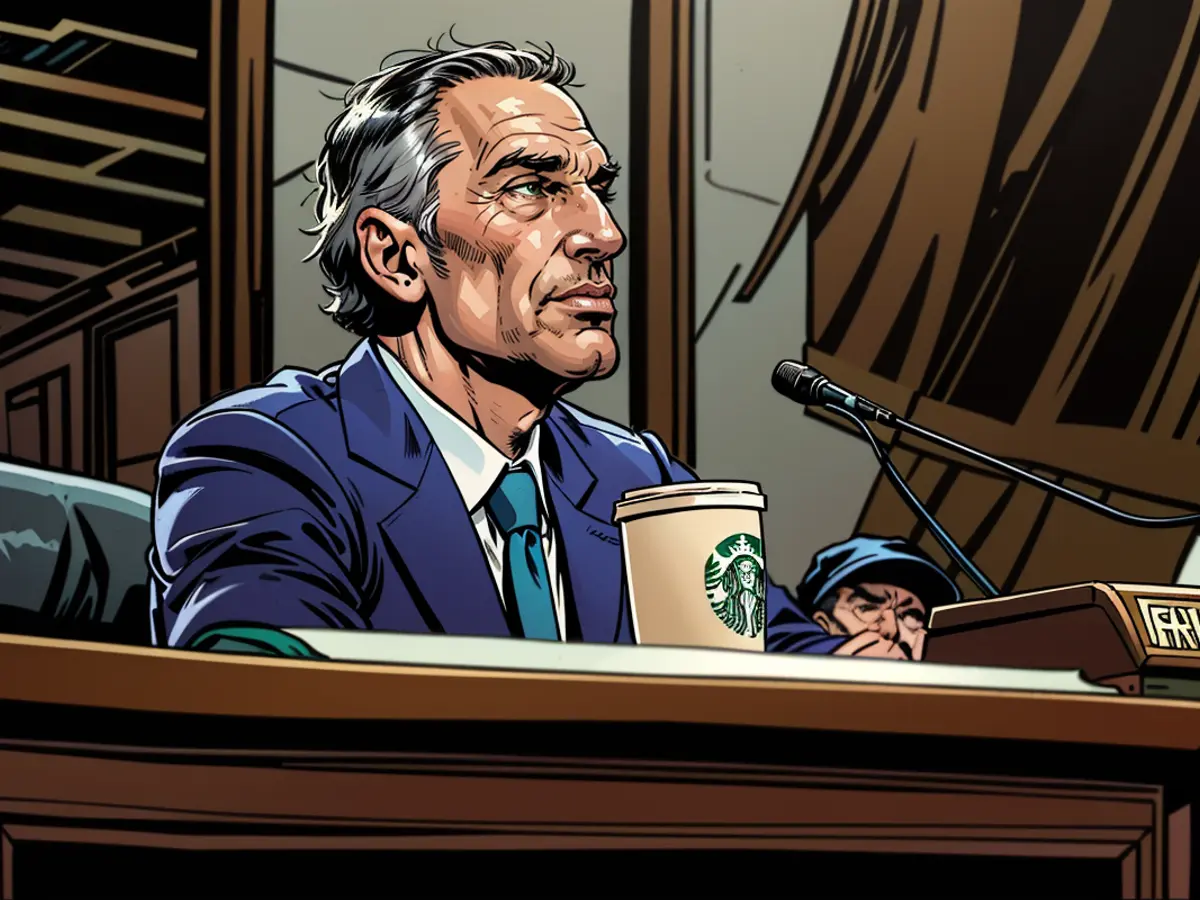Howard Schultz allegedly breached labor regulations by advising an employee, "If you're discontented with Starbucks, you're welcome to seek employment elsewhere."
The NLRB declared on Wednesday that Schultz's statement was an unlawful, intimidating threat.
This statement emphasizes the strained connection Starbucks has maintained with labor unions as an increasing number of its store workers unionize.
In the year 2022, while Schultz was serving as interim CEO, he attended a company gathering in Long Beach, California, to discuss and enhance working conditions at Starbucks outlets. Barista Madison Hall attempted to discuss the advantages of unionization and Starbucks' allegedly unjust labor practices, as per the NLRB.
Schultz inquired, "Why are you mad at Starbucks?" He argued that the event wasn't suitable for discussing union matters, then suggested working elsewhere. According to the administrative law judgment, he had a furious expression on his face. The NLRB decision upholds an administrative law judge's ruling from October 2023.
Starbucks issued a statement disputing the board's decision. "We remain committed to training and supporting our managers to guarantee respect for our partners' right to organize and make progress in our discussions with Workers United," said a spokesperson in a statement on Thursday.
Although Schultz relinquished his position in March 2023 following his third term as CEO, he remains associated with the company. Upon retiring from the Starbucks board of directors last September, the company bestowed upon him the title of "lifelong chairman emeritus."
"We observe that the judge identified the Respondent's highest-ranking official, interim CEO Schultz, as a 'legendary leader,' a status that would intensify the coercive nature of Schultz's statement," states the board decision.
Since the initial Starbucks outlet in Buffalo, New York, unionized in 2021, the coffee chain has been embroiled in numerous labor disputes over its alleged union-suppressing practices. One case, Starbucks v. McKinney, went before the Supreme Court in June about seven employees who were dismissed for attempting to unionize. The Supreme Court backed Starbucks.
An NLRB administrative law judge previously stated that Starbucks displayed "egregious and widespread misconduct" in its interactions with employees involved in attempts to unionize Buffalo stores, including the first store to unionize. Starbucks continuously sent top-level executives into Buffalo-area stores in a "persistent" effort, the judge wrote, which "probably left a lasting impression as to the importance of voting against representation."
Starbucks issued a statement at the time, expressing its consideration of all legal review options, and asserting that "we believe the decision and the remedies ordered are inappropriate given the record in this matter."
On October 1, the 500th Starbucks outlet voted to unionize, in Washington state, according to the union.
On Wednesday, the NLRB ordered Starbucks to stop threatening to dismiss employees for union activities and to display a notice of employee rights at all of its Long Beach stores.
"We're pleased to see the NLRB continue to support workers and our right to organize legally. At the same time, we're focused on the future and are proud to be charting a new path with the company," Michelle Eisen, Starbucks Workers United national organizing committee co-chair and bargaining delegate, said in a statement to CNN on Thursday.
Danielle Wiener-Bronner contributed to this report.
The strained relationship between Starbucks and labor unions has also impacted the company's business operations, with several stores unionizing.
Starbucks continually faces legal challenges over allegations of union-suppressing practices, such as the case of Starbucks v. McKinney, which went before the Supreme Court.








